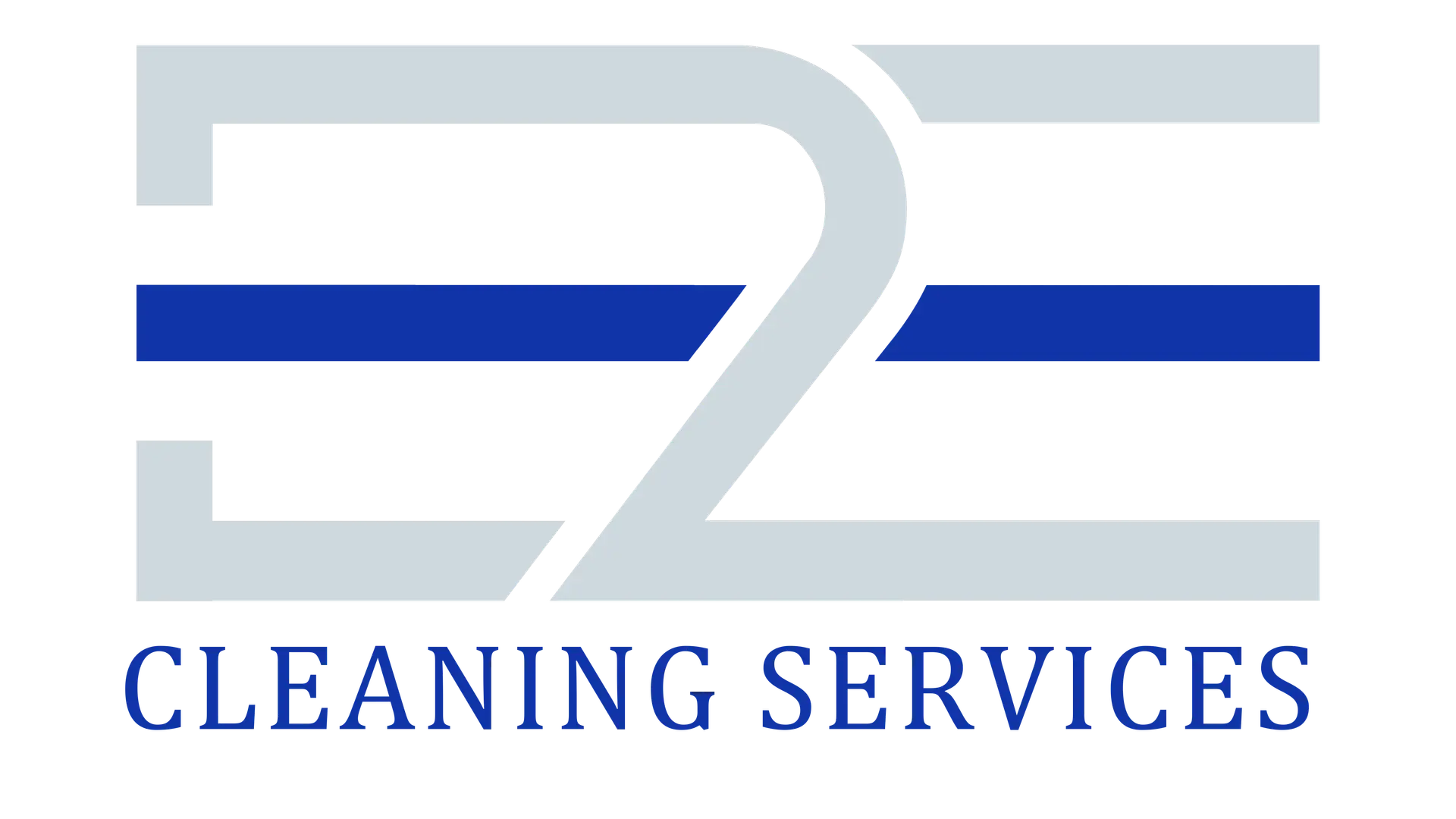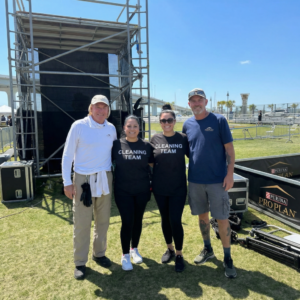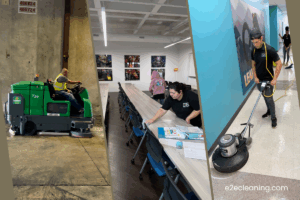From the sandy shorelines, to the hot and humid conference halls in Florida events come with special cleaning demands.
The expert breakdown in this guide includes strategies for each phase: pre event preparation, live event maintenance and post event clean up. Whether it is a beach wedding or a busy corporate exhibition, we focus on practices that ensure sustainability, staff coordination and venue requirements to ensure safe and flawless events.
The Critical Role of Cleaning in Successful Florida Events
Florida’s $91B event industry requires more than good logistics, it requires expert cleaning to match. The year round humidity average is 74% and venues are constantly at risk of mold, sand intrusion and wear.
Cleanliness is not just about appearance; it is the key to guest satisfaction, health and safety compliance and extending the longevity of a venue.
There are three stages of event cleaning:
- Pre-event prep
- During-event maintenance
- Post-event restoration
Each phase requires different tools, staff training and strategies, depending on the type and size of the event. Conferences require surface sanitation. If beach venues are to be used, sand control and salt-resistant products must be used.
Cleanliness matters:
- Attendees say that 68% of it helps shape their event experience (IAVM).
- A mere 23% fewer liability claims appear in clean venues.
- After the pandemic, 82% of guests notice cleaning efforts and are equally visibility and discretion of the cleaning operation.
Smart planning is cleaning that’s seen when needed, invisible when not, and always effective.
Pre-Event Planning & Preparation
Event cleaning starts well before guests arrive. The foundation is a site assessment, 7–14 days prior. Flooring types, vertical surfaces and risk zones are inspected by cleaning managers.
That also means checking sand migration, humidity systems and water intrusion points for Florida venues.
The result is a customized cleaning plan that includes the standard needs as well as the needs of the venue.
Prep for convention centers like the Orange County Convention Center includes:
- Electrostatic disinfection 24 hours in advance
- HVAC filter checks & air quality testing
- Hand sanitizer stations (1 per 50 guests)
- Soil-resistant carpet treatment
Beach venues demand more:
- Sand containment at entryways
- Humidity monitors
- Marine-safe cleaning products
In general, coastal venues need 30 percent more prep time than inland sites.
Placement of equipment is just as strategic:
- Cleaning hubs concealed within 30 seconds of key areas.
- Stockpiles of event-appropriate supplies
- Emergency spill kits
- Systems which blend in as aesthetic waste
Cleanliness verification matters, especially for healthcare or food-related events. ATP monitoring for surface testing confirms that sanitation is up to industry standards.
Bathroom prep is a high impact detail: 89% of guest complaints are about the bathroom.
Prep includes:
- Porcelain, chrome and fixtures deep cleaned.
- Time-release fragrance systems
- Touchless amenities Stocking at 120% of projected need of supplies
Timing matters: Cleaning teams need one day’s access (more for glass features or delicate finishes) per 10,000 sq ft for events over 500 guests.
During-Event Maintenance Strategies
Active events require some form of sensitive, visible cleaning that does not disrupt the seamless guest experience. Quiet tools, neutral uniforms and precise scheduling are used by professional cleaning teams to be present but not disturbed.
Core strategies include:
- Zone-based cleaning during scheduled breaks
- Key sessions where silent equipment use is used
- During peak traffic patterns, staff staggered around.
- Uniforms that match event aesthetics
Staffing ratios:
At corporate events, a staff-to-guest ratio of 1:100 means that there will be continuous coverage of important areas such as:
- Spill response catering and refreshment zones
- Hallways between sessions (paper waste)
- Areas with high touch including info desks and registration.
- Tech demo zones (device-safe cleaning)
In Florida, humidity control is very important.
Slippery entry points are common in air-conditioned venues. Moisture-absorbing mats are changed hourly and schedules are adjusted according to the weather.
Restrooms get high visibility.
Discreet restroom attendants are used for events of over 200 guests, who log supply use to prevent shortage and improve planning for future events.
Waste management focuses on efficiency:
- Key spots that have dual stream bins (recycling/landfill bins).
- Fill-level sensors to prevent overflow
- Removing before bins become unsightly and discreet.
- Compactors for high-traffic zones
Pros are separated from janitors by rapid response
In an emergency, certified teams handle damage and liability over the course of 90 seconds.
Typical scenarios:
- Biohazards (medical issues)
- Food/beverage spills (allergen risk)
- Chemical spills (OSHA protocols)
- Rain intrusions at hybrid venues
Comms are seamless:
Separate, private radio channels with earpieces make cleaning teams able to coordinate quickly and quietly without entering the comms space of a production team.
Post-Event Comprehensive Cleanup
After the event, cleanup operations usually start within 30 minutes after the event end and follow an organized procedure starting with an overall damage assessment. Digital imaging systems are used by professional teams to document pre existing and event related damage, valuable documentation for the client and venue management.
Multi-phase cleanup processes are implemented for large scale Florida events that generate significant waste.
Part 1: Immediate Recovery (0 – 2 hours after the event)
- Systematic removal of visible debris from public areas
- Collection and inventory of abandoned personal items
- Removal of event-specific signage and temporary fixtures
- Rapid restoration of restroom facilities to operational standards
Phase 2 – Deep Cleaning (2-8 hours after event)
- Appropriate cleaning agents are applied based on surface composition
- Extraction cleaning of carpet and soft surfaces
- Clean fixtures, trim and architectural elements in detail
- Specialized treatment of stains and damaged surfaces
Phase 3 – Final Restoration (8-24 hour post event)
- Such as buffing, polishing, and protective treatments of the surface
- Management of air quality is included replacing the HVAC filters
- Final inspection against pre-event documentation
- Removal of cleaning equipment and supplies
Specialized post-event protocols needed in beach venues include:
- Use of dry extraction methods to remove sand while preserving floor finishes
- The prevention of long term corrosion through salt residue neutralization
- Compliance with Florida’s environmental regulations in marine debris management
- UV damage assessment of outdoor fixtures and furnishings
During post-event operations waste management is completed in accordance with Florida’s stringent environmental guidelines with services provided by professionals that include:
- Material separation for maximum recycling yield
- If available, diversion of food wastes to composting facilities
- Donation coordination for unused consumables and floral arrangements
- Hazardous material identification and proper disposal
Post-event operations, especially for those venues with integrated technologies, include equipment restoration which is a significant component.
Professional teams decontaminate:
- Audiovisual equipment using manufacturer-approved methods
- Also, touch screens and interactive displays with static free processes
- Specialized cleaning agents are required for lighting fixtures
- Increased particulate loads affect climate control system
The post event process is completed by documentation with extensive reports such as:
- Before/after photography of restored areas
- Used for future planning of consumed supplies inventory
- Persistent issues that need special attention are noted.
- Recommendations for preventive maintenance between events
Standard corporate events are expected to take one hour of post-event cleaning per 100 attendees, though beach weddings can expect that amount of time to increase to one and a half hours per 100 people because of sand management needs.
Beachfront Weddings and Celebrations
Florida’s beach weddings demand more than elegance, they require precision cleaning adapted to nature’s unpredictability.
Key challenges include:
- Sand control at entry and seating areas
- Salt air corrosion on decor and structures
- Tides affecting cleanup timing
- Compliance with marine protection laws
Pro-teams handle it with:
- Sand-trapping mats at all transitions
- Tools equipped with filtration to avoid environmental harm
- Wraps that protect lighting, fixtures etc.
- High-humidity zones should have moisture controls to prevent mold
Post-event restoration takes time.
Beach cleanups typically need 1.5x more time than inland events due to terrain, tide windows, and equipment access.
Large-Scale Exhibitions and Trade Shows
Events at Florida’s major convention centres have high waste volumes, long schedules and are brand sensitive spaces that require expert cleaning.
Core challenges:
- Accumulation of promo material and packaging waste
- Flooring mixed with carpet, concrete and vinyl with unique care requirements
- Nonstop maintenance of long setup/breakdown windows
- Cleanliness is tied to exhibitor satisfaction and its brand image
Professional services ensure:
- Cleaning as booths are decommissioned on a systematic basis
- Tools for safe tape removal that protect flooring
- On-site sorting for maximum recycling
- Rapid-response teams for exhibitor-specific requests
The ROI is real:
Industry statistics also show that it takes exhibitors 22% more time to interact with attendees at professionally cleaned event venues instead of tending to their spaces. This shows the direct business value of full cleaning services for large scale events.
Rapid response cleaning. Click to learn how we handle emergencies in under 90 seconds
Festival and Outdoor Event Cleanup
Florida’s outdoor events require adaptive cleaning approaches due to unique environmental challenges such as humidity, sudden weather changes, and coastal conditions.
- Weather-responsive cleaning schedules accommodating precipitation
- Natural debris management of surrounding landscapes
- Temporary infrastructure that requires special cleaning techniques
- Extended perimeters increasing cleanup scope
Professional outdoor event cleaning includes:
- Environmental impact assessment prior to cleaning implementation
- Creation of buffer zone to prevent migration of cleaning agent
- Prevention of accidental consumption of wildlife safe waste management
- Systems for protecting the ground from contamination
Environmental restoration verification is a part of the post-event assessment, which is to verify that the venue returned to pre-event conditions with minimal ecological impact.
Environmental Considerations for Florida Events
Cleaning practices at Florida’s sensitive ecosystems must go beyond mere compliance, actively protecting water sources, wildlife habitats, and air quality during and after events.
Water Conservation Measures
- Up to 70% water use can be cut with low moisture systems
- Greywater recycling where applicable
- Runoff barriers to protect waterways
- Pressure washing that uses moisture control to minimize waste
Chemical Management
- Green Seal / EPA Safer Choice-certified products
- pH-neutral formulas safe for marine life
- Concentrated solutions to cut packaging
- Dilution to prevent overuse of chemicals
Coastal Regulations Add Layers:
- Cleaning hours are limited by sea turtle lighting rules
- Dune protections restrict access paths
- Motorized beach equipment permits
- Marine debris protocols strictly enforced
Smart Waste Management:
- Waste-reduction planning with organizers
- Stream-specific collection for higher recycling rates
- Prevention of contamination through onsite staff training
- Partnerships with local recycling processors
Reducing Carbon Footprint:
- Planning of routes to reduce vehicle emissions
- Electric equipment preferred over gas-powered
- Carpool incentives for cleaning teams
- Paperless processes for reporting and documentation
Certifications Are Now the Standard:
Third party green credentials are required by many venues. Premium spaces now require LEED compliant cleaning and the top providers stay certified by ongoing training and audits.
Hiring the Right Event Cleaning Service
Finding the optimal cleaning provider is all about a perfect combination of expertise, reliability and, environmental compatibility.
Key Qualifications:
- Experience showing they’ve worked in similar type venue and similar type events.
- Staff that is certified and document safety protocols
- Strong references—especially from venue managers
- Equipment readiness and full liability coverage
Booking Timeline:
- Book 2–4 weeks in advance for small events (<100 guests)
- Medium (100–500): 1–2 months
- Large (500+): 3–6 months
- Peak dates (holidays): 6–12 months
Pricing Models:
- Per Square Foot
- Per Attendee
- Hourly Rate
Contract Must-Haves:
- Clear service scope and exclusions
- Emergency fees and cancellation terms
- Equipment/supply responsibilities
Package Tiers:
- Standard: Restroom care, waste removal, basic cleanup
- Premium: You require a custom scheduling, dedicated manager, and surface restoration
- Executive: Deep cleaning, VIP response teams, post-event reporting
Vendor Coordination:
Catering, decor, security and logistics teams are provided by top providers that collaborate with these teams to ensure seamless cleaning support during the event.
Sustainability Credentials:
Evaluate service providers for transparency regarding their cleaning products, waste diversion metrics, water conservation practices, and third-party green certifications to ensure environmentally responsible event management.
Conclusion
Event cleaning in Florida requires expertise, flexibility and accuracy. From pre-event preparation to post-event restoration, professional services are essential to protect the integrity of the venue, increase guest satisfaction and meet regulatory requirements.
Discreet, high-impact operations are most effective – maintaining cleanliness without disrupting the event. However, this balance can be achieved with the right trained staff, venue-specific protocols and the right tools.
The right cleaning partner for planners and venue managers is directly involved in ensuring the success of an event and the long-term preservation of an asset. As an ally to sustainability, cleaning providers are also reducing waste, conserving water and protecting local ecosystems as they become more environmentally conscious.
Finally, event cleaning is not just about appearance.
It’s measured by:
- Extended venue life
- Health and safety compliance
- Environmentally conscious practices
- Streamlined operations that increase profitability
With strategic, green cleaning, Florida event professionals can enhance the attendee experience and reinforce the company’s mission statement, with events that are remembered for doing the right thing.






